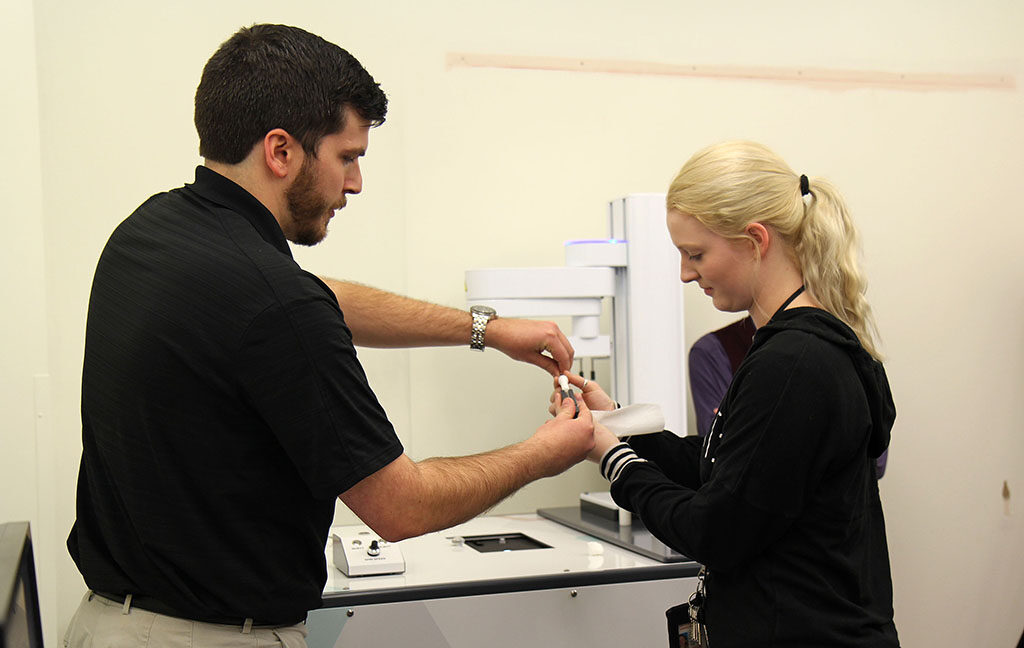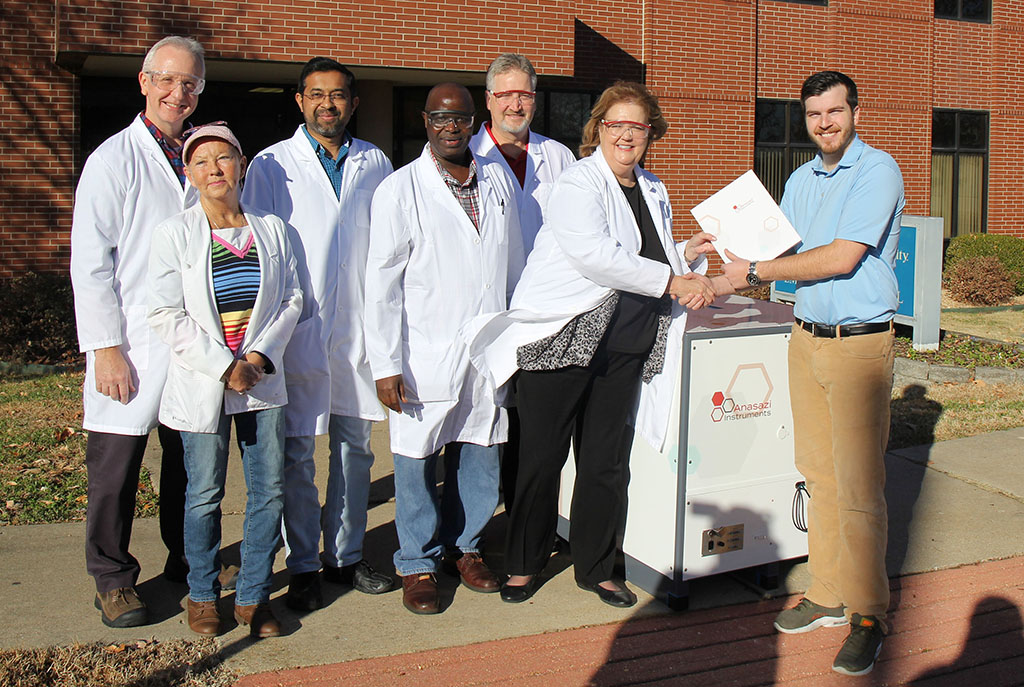College and high school students in south-central Missouri have a new and powerful tool to use in their study of chemical compounds.
Officials at Missouri State University-West Plains recently purchased a 90 MHz nuclear magnetic resonance (NMR) spectrometer with funds from a three-year, $242,790 grant from the National Science Foundation.
It was installed Nov. 19 by an engineer from Anasazi Instruments, Inc., a leading manufacturer of spectrometers for educational and industrial markets.
One of the most powerful tools available
The NMR spectrometer is one of the most powerful tools available for chemists to use to examine the structure of molecules, according to Dr. Joseph “Kip” Rugutt, professor of chemistry at Missouri State-West Plains and principal investigator for the grant.
“It is used to identify unknown substances, to characterize specific arrangements of atoms within molecules, and to study the rates of interactions between molecules in solution,” he said in the grant application.
“The NMR studies improve understanding of synthetic organic/inorganic chemistry, materials chemistry and biochemistry. This instrument is an integral part of teaching and the research performed by undergraduate students that will impact green chemistry and recyclable ionic liquids used to accelerate reaction rates,” he added.
Many innovative, guided inquiry experiments will be possible with the spectrometer, Rugutt said. Among them:
- Research into specific chemical markers in samples of commercial honey to determine their levels of adulterations (if any), botanical origins and geographical origins;
- Investigating the role of dispersants and agitation on water solubility of toxic organic compounds from crude oil in the context of a real or a simulated environmental oil spill;
- Natural products experiments that will teach students important research techniques such as procedures for isolating individual chemical compounds from medicinal plants and bio-testing compounds for activities against various human cancer cell lines.

USTAR Initiative
Rugutt said the spectrometer also will be used in the bioinspired initiative Undergraduate STudent Achievers in Research (USTAR), which promotes student participation in STEM (science, technology, engineering and math) activities at the university and area high schools.
“The goal of the USTAR program is five-fold: Recruit qualified high school students, freshmen and sophomores; support a broad array of exciting projects that promote student interest in STEM; improve retention of students, especially groups underrepresented in STEM, using effective student-centered metacognitive and mentoring strategies; strengthen the ongoing collaborative research with universities in Kenya; and offer career development activities that encourage students to pursue STEM courses in two- and four-year colleges and beyond,” he explained.
Highly competitive grant program
Rugutt said it is quite a coup for Missouri State-West Plains to receive the highly-competitive NSF grant from its Major Research Instrumentation (MRI) Program.
“During the fiscal year 2019 MRI competition, various institutions of higher education and not-for-profit, non-degree-granting institutions submitted proposals. With hundreds of excellent proposals and success rates of less than 20%, we feel humbled to have been among the few recipients of the award,” he said.
For more information about the grant and the spectrometer, contact Rugutt at JRugutt@MissouriState.edu.
For more information about the academic programs available at Missouri State-West Plains, call 417-255-7955.

